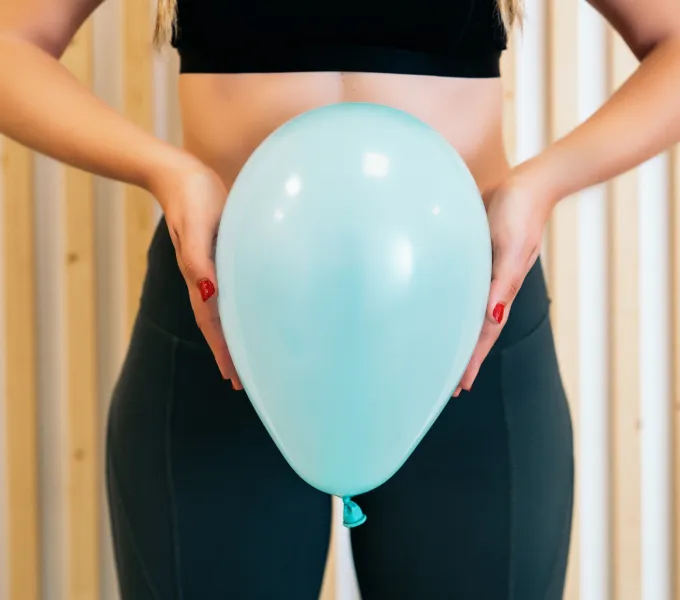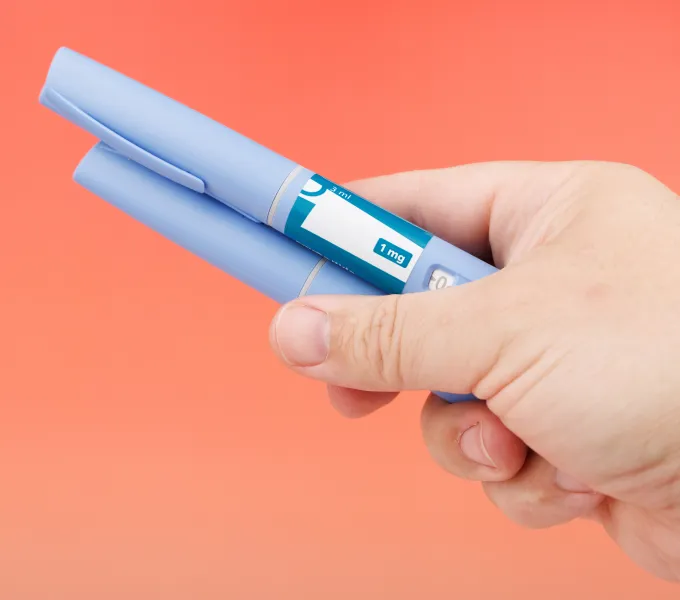
Itchy Vulva for Months? It Could Be Your Pelvic Floor
Is there anything worse than a crazy-itchy vulva? When that tingly, burning, incessent itch flares up, it can feel impossible to focus on anything else — and the urge to shove your hands down your pants and SCRATCH can be all-consuming. If you’re lucky, a quick trip to the gynecologist will reveal a bacterial or yeast infection, and the itch will be gone as soon as you treat it with meds.
But when there's no infection present and the itch persists for weeks or months, it's time to consider other causes, which can include allergies — for example to a laundry detergent or personal hygiene product like a maxi pad or vulva wipe — as well as pelvic floor dysfunction (PFD).
We're here to talk about PFD because most people are surprised to discover that certain pelvic floor issues are associated with chronic vulva itching. If that's true for you, seeing a pelvic floor physical therapist can deliver the permanent itch relief that you're looking for.
A Quick Look at the Anatomy of the Vulva
The term 'vulva' refers to the external sex anatomy of people assigned female at birth. The vulva consists of everything from the cushiony tissue on top of the pubic bone (the mons pubis) to the perineum (the tissue between the vaginal and anal openings) and includes the clitoris, labia (inner and outer folds), and urethral and vaginal openings.

The vulva is a highly sensitive area that's prone to irritations and dryness. Vulvar skin changes often occur in response to the normal hormone fluctuations, including around puberty, menstruation, pregnancy, postpartum, and menopause. When your vulva is itchy, that itch can be specific to a single area or encompass every part of your vulva, including inside the deep folds of the labia.
How Can a Pelvic Floor Dysfunction Make Your Vulva Itchy for Months?
Located at the base of your pelvis, the bowl-shaped pelvic floor muscles sit just under the skin of your vulva. When these muscles are working properly, they help to circulate blood to and from your vulva, vagina, and other pelvic organs. But when these muscles are overly tight (aka hypertonic), that blood flow becomes restricted, which then limits the delivery of hormones and other nutrients to the nerves and tissues of the vulva. As a result, vulva tissue can become unhealthy and start to itch.
In addition to hypertonic pelvic floor, these other pelvic floor-related conditions can contribute to vulvar itching:
- Vulvodynia, aka chronic vulva pain, is often accompanied by a burning and/or itching sensation.
- Bladder leaks due to weak or underused pelvic floor muscles can irritate the skin of the vulva, making it itch.
- Pudendal neuralgia, a condition where tight pelvic floor muscles compress and injure the pudendal nerves, producing “nervy symptoms” such as pain, altered perineal sensation, and vulvar itch.
When Should You See a Doctor About an Itchy Vulva?
For any new, or reoccurring symptoms of vulvar itching, you should always check in with your physician to rule out an infection or allergic reaction. This is particular important if your itchy vulva is accompanied by any of the following:
- Intense itching and/or burning
- A change in your vaginal discharge (color, consistency, or volume)
- Irregular vaginal bleeding
- Lesions or irritations noted on the skin of your vulva
- Unusual vaginal odor
- Body aches and/or fever
- Blood in your urine and/or pain with urination
4 Habits that Can Help Soothe an Itchy Vulva
To address a relentlessly itchy vulva, it's important to consult with a doctor, particularly if you’re experiencing any of the above symptoms. This should always be the first step for new or persistent itching to help rule out or treat common medical or dermatological causes.
If that doesn't solve your issue, ask your doctor for a referral to see a pelvic floor PT — or book a visit with one yourself. At Origin, our physical therapists are specialists in addressing all things pelvic floor related, including vulvar itch as a result of pelvic floor muscle dysfunction. We use evidence-based treatments to get the root of the problem and put an end to your itch as soon as possible. You can even save time by booking a virtual visit to address vulva itching.
In the meantime, check out these 4 tips to help care for your vulva and minimize itchy irritations:
- Clean gently. Cleaning your vulva in the same way you would your back is sure to create an irritated, itchy vulva. Especially when your vulva is itchy, you want to avoid cleaning with soaps or other products (and definitely not douches). You don’t need them! Instead, cleanse with lukewarm water using your finger tips, then pat your vulva dry with a clean towel.
- Mind how you wipe. You've heard it countless times: after you go to the bathroom, wipe from front to back to avoid wiping bacteria closer to your vaginal or urethral opening. When you're in a rush, this golden rule can be easy to forget, but sticking to it will help keep your vulva symptom-free.
- Use a safe lube. Lube can reduce the chances that you'll irritate your vulva during sex. Pick one that’s free of harsh chemicals, scents, flavors, or sparkles!
- Moisturize. If your vulva feels dry throughout the day, use a small amount of a natural oil such as vitamin E or a made-for-your-vulva moisturizer.




